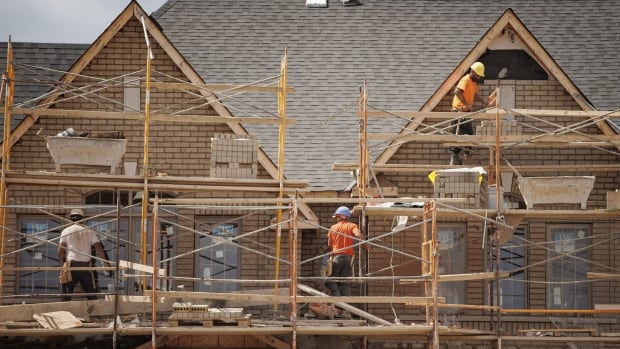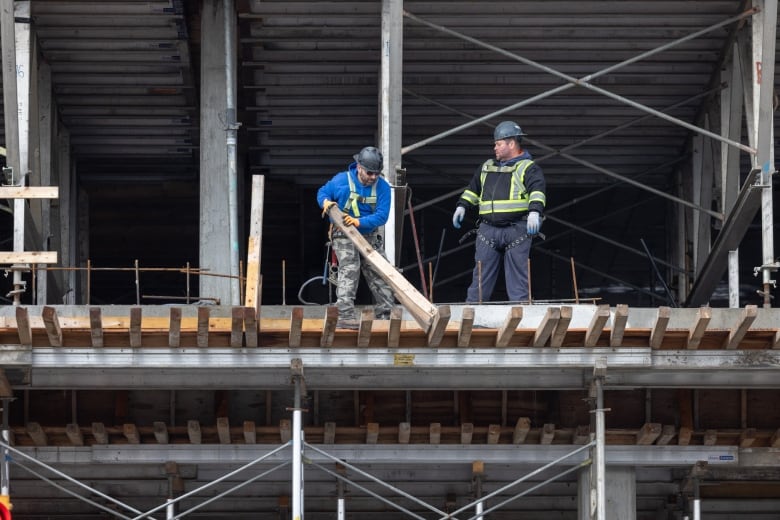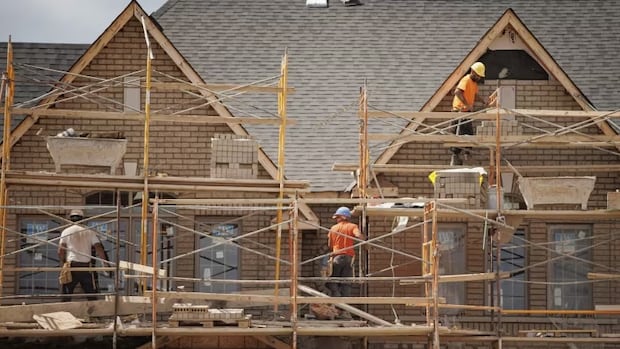
The annual rate of housing starts in Canada fell slightly by one per cent compared with March 2024, while the number of residential home sales dropped in the same period of time, according to separate sets of numbers released today by the Canada Mortgage and Housing Corporation (CMHC) and the Canadian Real Estate Association.
The CMHC, Canada’s national housing agency, reported that the annual rate of housing starts, or how many new homes began construction, dropped from 242,267 in March 2024 to 240,229 in April.
The agency’s six-month average measure of trends also dropped, with the seasonally adjusted moving average over that period of time dropping by 2.2 per cent in the most recent report.
Actual new housing construction, when not seasonally adjusted, also dropped in Toronto, Vancouver and Montreal for both multi-unit and single-detached homes compared to last year in Toronto, Vancouver and Montreal.
While there is more multi-unit construction (such as condos) than single-detached housing starts, CMHC’s chief economist Bob Dugan noted that higher interest rates have been a factor leading to some decreases in multi-unit starts.

“Volatility observed in Toronto, Vancouver and Montreal in recent months is unsurprising as we continue to see last year’s challenging borrowing conditions reflected in multi-unit housing starts numbers. We expect to see continued downward pressure in these large centres,” wrote Dugan in a press release.
As far as housing costs are concerned, in an emailed newsletter, BMO chief economist Doug Porter pointed out that while multiples like apartments or condominiums are “the dominant form of starts,” because they take longer to complete than a single-family home, any new units “will not come riding to rescue for strained affordability soon.”
Real estate sales down month over month, too
Releasing separate numbers on the same day, the Canadian Real Estate Association (CREA) says that home sales in April are down by 1.7 per cent in Canada compared to March 2024, though they are higher than the year prior.
RBC economist Rachel Battaglia calls the numbers an indication that many large markets are “continuing to soften” across Canada.
“Even Alberta, where activity was fairly strong up until now, posted a sharp drop in sales activity,” she said.
“We think that could be in response to rapid price appreciation, which we’ve been seeing in Alberta, Calgary, in particular … that could be forcing some potential buyers to tap out as affordability out there worsens.”
Despite the month-over-month drop, CREA says a significant part of why April 2024 was higher than April 2023 is because of the Easter holiday weekend, which took place earlier in March this year. Essentially, a few more business days than usual in April 2024 compared to 2023 may have led to higher sales.
While sales were up compared to last year, the average sale price was down 1.8 per cent compared to April 2023, at $703,446.

The number of properties for sale in April, otherwise known as inventory, went up as the spring real estate season begins.
Despite those new listings increasing supply in some markets, Battaglia confirms prices remain relatively flat, without any big resulting drops.
“We have budget constrained buyers who still appear to be at a standstill, just waiting for rate cuts and for affordability to improve before entering the market,” she told CBC News.
The number of residential home sales dropped in April 2024 compared to the month before, according to the Canadian Real Estate Association.
According to CREA, the lower sales in April compared to March, combined with more listings, meant that the overall number of properties on the market went up by 6.5 per cent. That is the highest level, according to the real estate association, since just before the COVID-19 pandemic began.
